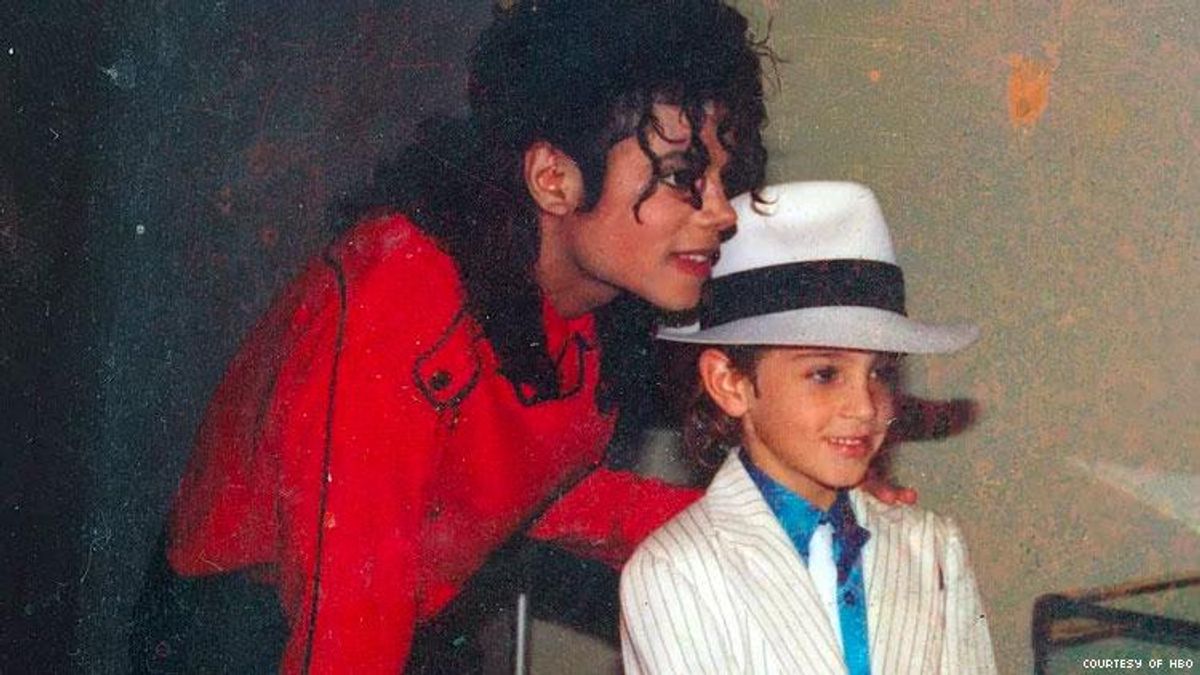Editor's Note: This article has been turned into an episode of The Ten, The Advocate's LGBTQ news podcast. Click here to listen to Zach Stafford and Tre'vell Anderson talk about Michael Jackson's complicated legacy.
While HBO's new documentary Leaving Neverland appears to have significantly shifted the conversation on Michael Jackson, many fans and radio stations are refusing to let go of the late King of Pop.
The documentary follows James Safechuck and Wade Robson, two men who say that they were groomed, sexually assaulted, and raped as children by the pop singer. Part 1 of the two-part documentary aired on HBO Sunday and part 2 will air Monday night. The full documentary is already available on HBO's online platforms.
While many have denounced Jackson because of the allegations publicized in the documentary, others have continued to play his music and support him.
Despite earlier reports that the BBC had stopped airing music from Jackson's catalog on its stations, Variety has since countered those claims, with a BBC spokesperson saying, "Michael Jackson was just played on one of our stations today."
"The BBC does not ban artists," another BBC spokesperson told Variety. "We consider each piece of music on its merits and decisions on what we play on different networks are always made with relevant audiences and context in mind."
Fans of Michael Jackson have flooded social media with hashtags like #MJinnocent to defend the singer and pan the film.
Oprah Winfrey -- who will interview Safechuck and Robson in a televised special tonight at 10 Eastern, after part 2 of documentary airs -- has been the target of several hateful messages on Twitter from Jackson defenders. However, in a promotional video for Oprah Winfrey Presents: After Neverland -- which will air on HBO and OWN -- she seemed ready for the backlash:
"I know people all over the world are gonna be in an uproar and debating whether or not Michael Jackson did these things or not, did he do it or not do it, whether these two men are lying or not lying," Winfrey said. "But for me, this moment transcends Michael Jackson. It is much bigger than any one person. This is a moment in time that allows us to see this societal corruption. It's like a scourge on humanity and it's happening right now. It's happening in families."
While the Jackson documentary follows a string of recent productions focused on allegations of abuse by celebrities, it appears to be the most polarizing one.
After the Lifetime docu-series Surviving R. Kelly, featuring accusations that Kelly had sexually abused several underage women, aired in early January, the hashtag campaign #muterkelly quickly circulated on social media in an effort to quash Kelly's influence.
The music industry responded to the series in a swift manner, with past Kelly collaborators, like Lady Gaga, denouncing the singer on social media and removing their collaborations from streaming services. Kelly's label, RCA Records, parted ways with him in late January, while his music was removed from the catalogs of many urban contemporary music stations.
Kelly was formally charged February 22 with 10 counts of aggravated criminal sexual abuse .
While the controversies surrounding the two musicians are quite similar on paper, the allegations against Kelly were met with faster and far more universal condemnation than those involving Jackson.
Members of the Jackson family have disputed the claims in the documentary and, according to People, have filed a $100 million lawsuit against HBO that calls the documentary a "posthumous character assassination." Jackson died in 2009.
Click here to listen to The Ten podcast talk about Michael Jackson's complicated legacy.














































































